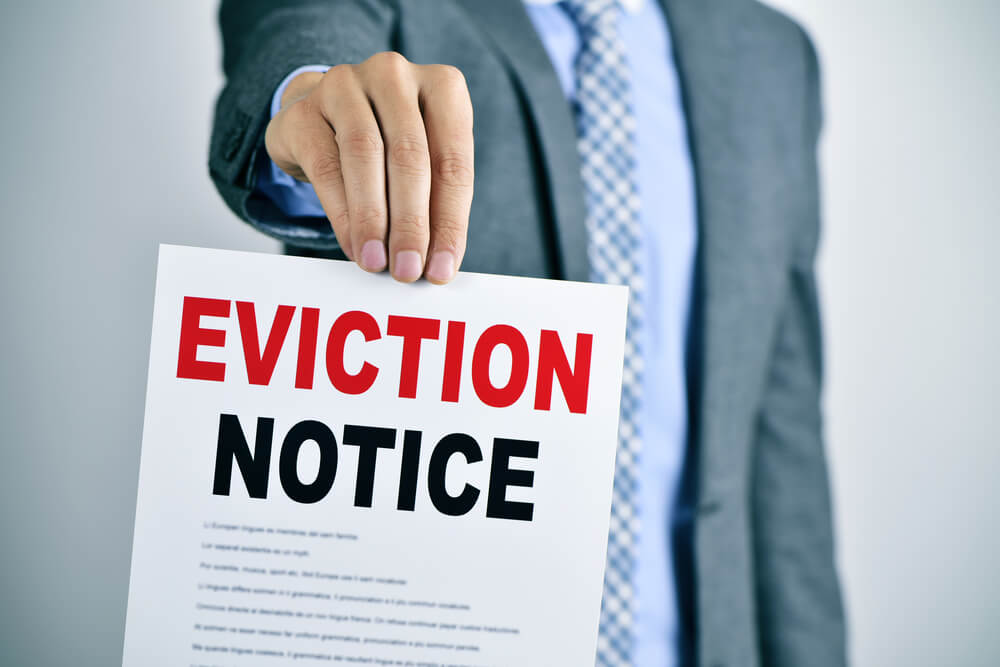

With the current cost of living crisis and ever-increasing rents, tenants are finding it more and more difficult to keep on top of rent payments. This article explains why rent arrears could risk a tenant’s eviction and what help is available for tenants facing eviction for rent arrears.
Obligation to pay rent
Most tenants will have a tenancy agreement in writing that will set out how much the tenant’s rent is and when it should be paid. If the tenant is unsure, they should check with their landlord or the managing agent.
It is important for the tenant to keep their own record of any rental payments, including any receipts and/or bank account transfers. This is because sometimes there will be a dispute between a tenant and landlord about the amount of rent owing. The tenant will have a much better chance of persuading a court that they have been paying rent if they have evidence to show these payments.
What can a landlord do if a tenant doesn’t pay the rent?
Ultimately, a landlord can seek to evict a tenant from their home. A landlord must follow the correct legal procedure to lawfully evict someone from a property. In most cases where there is a tenancy, the landlord must first give a notice of seeking possession to the tenant, then issue a claim for possession at court to obtain a Possession Order, and finally instruct bailiffs to attend the property to evict anyone living there.
Currently, if a tenant has an assured shorthold tenancy agreement, their landlord can use the section 21 notice procedure. This is also known as the “no fault” procedure because the landlord does not need to give any reason for seeking the tenant’s eviction. Instead all the landlord would need to show is that they had followed the correct legal procedure and that the notice was valid. The court would then have no choice but to make a Possession Order.
A tenant may have a defence to a claim for possession brought on this basis if the landlord had failed to comply with the initial requirements of renting out a property (which include (but are not limited to) issuing a Gas Safety Certificate, and protecting a tenancy deposit). However, a tenant will usually only have 14 days from the day they receive a claim form for possession from the court to submit their defence. This is why it is important to obtain legal advice at an early stage (for instance, when they receive a section 21 notice).
The Government has announced their intention to end the section 21 notice procedure – see our article on the proposed law here. However, until this law is approved by Parliament, landlords can still rely on this “no fault” procedure. This means that it is important for tenants to keep on top of their rent, to avoid giving their landlord reason to use this procedure to evict them.
If a landlord cannot rely on a section 21 notice (for instance, if the fixed term of the tenancy has not come to an end, or they are in breach of the tenancy deposit rules), they can use the standard possession route. Under this route, the landlord will usually have to prove that the tenant is in rent arrears. If a tenant can show that they are not in rent arrears or they are taking steps to reduce their arrears and resolve any issues that led to the arrears building-up, then they may be able to persuade a court not to make a Possession Order against them. Again, it is important for tenants to obtain legal advice at this stage, to check whether they have a defence to the claim for possession.
When should a tenant get help about rent arrears?
As soon as possible! It is crucial to seek help quickly and there are many organisations who can assist. In the first instance, as soon a tenant realises they are struggling with rent payments they should speak to their landlord or managing agents. The tenant could come to an arrangement for a payment holiday or to make contributions to reduce the arrears each month. Having this early conversation may mean that they are less likely to take any action against the tenant.
What else can a tenant do?
A debt advisor might be able to offer practical help with your rent arrears. A tenant could contact their local branch of Citizens Advice, Stepchange or National Debt Line. These organisations can talk to the tenant about their money problems and liaise with the landlord to avoid them taking eviction action.
Can Breathing Space help?
Breathing Space is a debt respite scheme that came into force in 2021. It is a way of preventing creditors, including landlords, from taking enforcement action against a tenant to recover debts. There is a standard Breathing Space and a Mental Health Crisis Breathing Space (also called a Mental Health Crisis Moratorium). A qualified debt advisor will be able to give the tenant more information about which would be best for them. The main point of Breathing Space is that it gives the debtor some time to sort out their finances, with the help of a qualified debt advisor. It should be remembered that this isn’t a permanent solution to the debts – it is only intended to be a temporary measure.
What can a local authority do to help?
Local authorities have duties towards their residents, and a tenant should contact their council if their landlord has threatened (or started) court action to evict them. The council can sometimes agree to make a payment to the landlord to avoid the tenant being evicted. This can be done under their homelessness prevention duties. If a landlord cannot be persuaded from taking action to evict the tenant, the local authority may also have a duty to provide temporary accommodation to the tenant (depending on their circumstances).
My landlord is trying to evict me because of my rent arrears…
If your landlord is trying to evict you because of your rent arrears, then you should not ignore any court letters or hearing dates and you should try to rearrange any of your commitments to make sure that you can attend the hearing. As soon as you receive a notice of seeking possession or court papers you should contact housing solicitors or law centres to obtain advice and assistance. Legal aid is available to cover the costs of this advice and assistance, so long as you are financially eligible.
If you need help and advice, please contact our housing solicitors on enquiries@tvedwards.com or 020 3440 8000.







